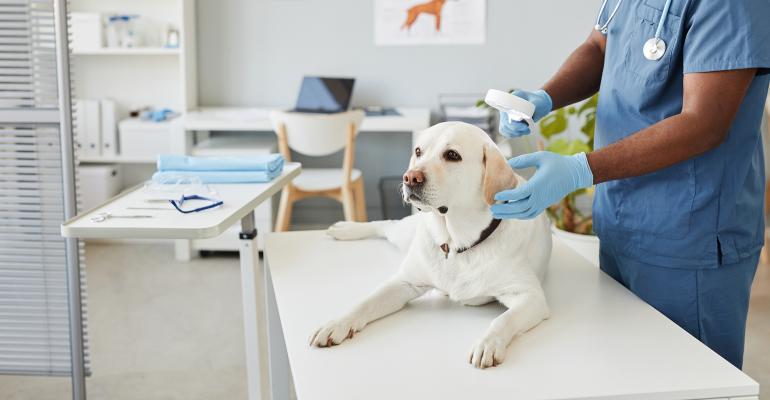Veterinary Clinic
Introduction:
The proposed business is a veterinary clinic in Africa that aims to provide high-quality medical care to animals, including dogs, cats, and livestock. The clinic will offer a range of services, including routine checkups, vaccinations, surgical procedures, and emergency care. The clinic will be located in a strategic location that is easily accessible to pet owners and farmers in the surrounding areas. The clinic will use innovative technology and digital platforms to provide convenient and efficient services to clients.

Market Analysis:
The demand for veterinary services in Africa has been increasing in recent years, driven by the growing pet ownership and the need to improve animal health in the agriculture sector. The African pet care market is expected to reach $4.4 billion by 2024, while the veterinary services market is projected to grow at a CAGR of 5.5% from 2020 to 2027.
The target market for the veterinary clinic will be pet owners and farmers in the surrounding areas. The clinic will be located in a densely populated area with a high concentration of pet owners and farmers. The clinic will also leverage digital platforms to reach a wider audience and provide convenient services to busy clients.
Services and Products:
The veterinary clinic will offer a range of services to cater to the diverse needs of pet owners and farmers. The services will include routine checkups, vaccinations, surgical procedures, emergency care, and laboratory diagnostics. The clinic will also offer a mobile clinic service to reach clients in remote areas and provide on-site care to livestock.
Innovation:
The veterinary clinic will leverage innovative technology and digital platforms to provide efficient and convenient services to clients. The clinic will have an online booking system that allows clients to schedule appointments, access their pet’s medical records, and receive reminders for upcoming appointments. The clinic will also have a telemedicine platform that enables clients to consult with veterinarians remotely and receive virtual care for their pets.
The clinic will also use advanced diagnostic tools, such as ultrasound and digital radiography, to improve the accuracy of diagnosis and treatment. The clinic will also implement a digital inventory management system to ensure the availability of medications and supplies.
Marketing and Sales:
The veterinary clinic will use a multi-channel marketing strategy to reach its target audience. The clinic will leverage social media platforms, such as Facebook and Instagram, to promote its services and engage with clients. The clinic will also collaborate with local pet stores and farmers’ markets to distribute flyers and brochures.
The clinic will offer competitive pricing for its services and provide discounts for regular clients and bulk purchases of medications and supplies. The clinic will also offer a loyalty program that rewards clients for their continued patronage.
Financials:
The veterinary clinic will require an initial investment of $500,000 to cover the costs of equipment, supplies, and marketing. The clinic is projected to generate revenue of $1.2 million in the first year and achieve a net profit of $150,000. The clinic’s revenue is expected to grow at a CAGR of 10% over the next five years, reaching $2.5 million in the fifth year.
Conclusion:
The veterinary clinic in Africa is a promising business venture that has the potential to improve animal health and welfare while generating significant revenue and profits. The clinic’s innovative approach, leveraging technology and digital platforms, will enable it to provide efficient and convenient services to clients, setting it apart from traditional veterinary clinics in the region. With a strategic location, a diverse range of services, and a strong marketing strategy, the veterinary clinic is poised for success in the African market.







